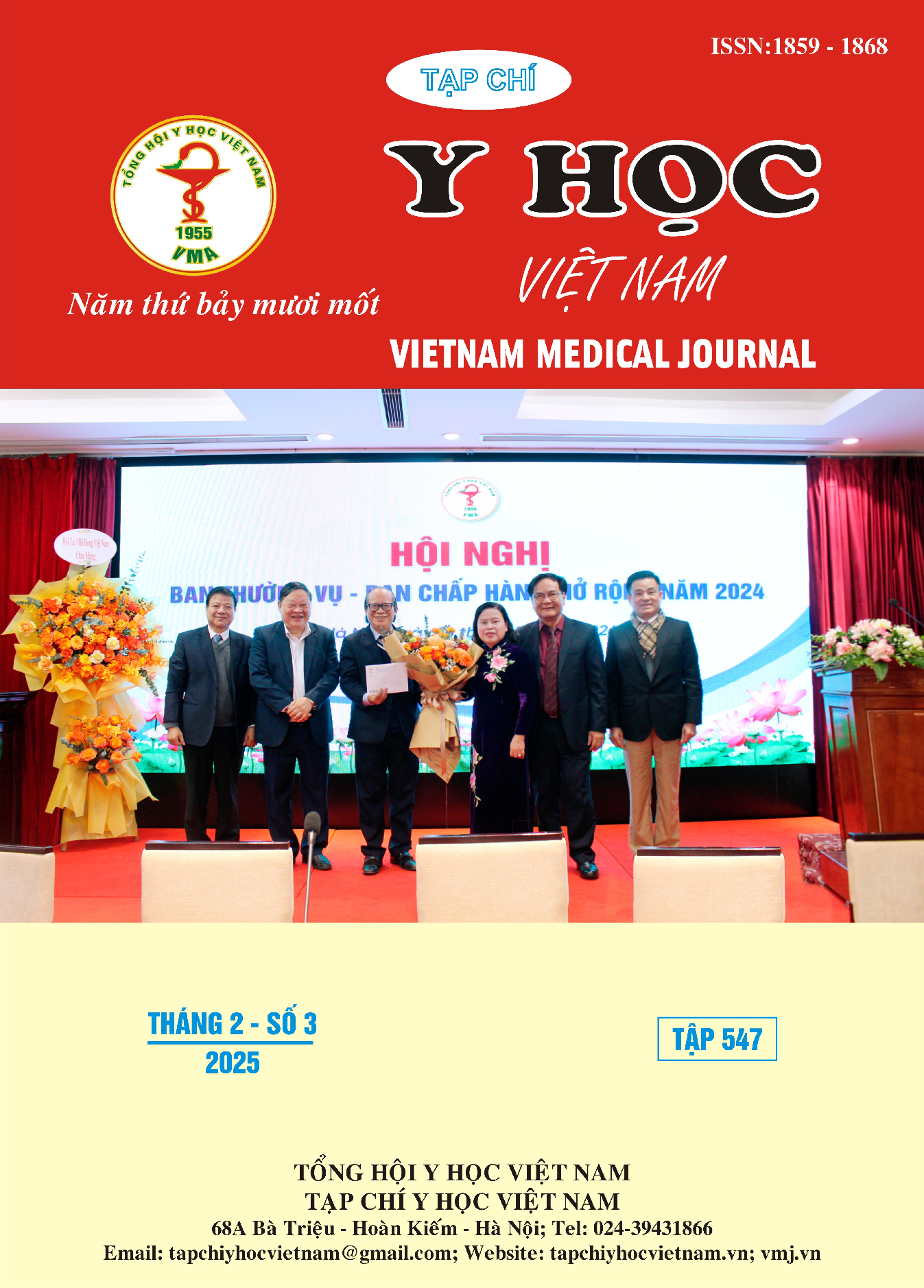POSTNATAL CARE KNOWLEDGE AND POSTPARTUM CONFINEMENT OF MATERNAL IN UNIVERSITY MEDICAL CENTRE
Main Article Content
Abstract
Introduction: Postnatal care for mothers and newborns not only plays a crucial role in safeguarding health but also contributes to a nation’s sustainable development. Assessing postnatal care knowledge and the level of agreement with postpartum confinement practices provides insights into maternal awareness and practice trends, thereby optimizing care and support for postpartum women. Objective: Identify factors associated with postnatal care knowledge, postpartum confinement practices, and the relationship between the mean scores of postnatal care knowledge and postpartum confinement. Methods: A cross-sectional study was conducted at the Gynecology and Obstetrics Department, University Medical Center, Ho Chi Minh City, from March 2024 to May 2024, with 278 postpartum mothers at the discharged-day. The structured questionnaire was developed by combining a tool assessing maternal perceptions of postpartum confinement in Vietnam and a questionnaire evaluating postnatal care knowledge. Results: The study revealed a statistically significant difference in postnatal care knowledge scores across household (p = 0,035), breastfeeding experience (p = 0,009), and milk expression experience (p = 0,016). Additionally, postpartum confinement scores varied by religion (p = 0,019) and income. (p = 0,043), with lower-income groups and Atheism showing higher agreement scores. However, no significant association was found between the mean scores of postnatal care knowledge and postpartum confienment. Conclusions: Postnatal care knowledge and postpartum confinement agreement were measured by scores, with higher scores indicating greater knowledge and agreement. However, the study results showed that the decision to practice postpartum confinement was not influenced by the postnatal care knowledge scores of mothers.
Article Details
Keywords
Postnatal care knowledge, postpartum care, postpartum confinement
References
2. Nguyen TL. Childbirth, Maternity, and Medical Pluralism in French Colonial Vietnam, 1880- 1945. NED - New edition ed: Boydell & Brewer; 2016.
3. Vietnam GSOo. Tổng cục thống kê. Tỷ suất chết của trẻ em phân theo giới tính và phân theo thành thị, nông thôn. 2023.
4. NICE. Postnatal care NICE GUIDELINE; 2021. 65 p.
5. WHO. Postnatal Care for Mothers and Newborns Highlights from the World Health Organization 2013 Guidelines. 2015:8.
6. Beraki GG, Tesfamariam EH, Gebremichael A, Yohannes B, Haile K, Tewelde S, et al. Knowledge on postnatal care among postpartum mothers during discharge in maternity hospitals in Asmara: a cross-sectional study. BMC Pregnancy and Childbirth. 2020;20(1):17.
7. Lan PP, Hòa VT, Dương NTT. Thực trạng chăm sóc sau sinh của bà mẹ ở hai bệnh viện trên địa bàn Hà nội và đánh giá mô hình chăm sóc sau sinh tại nhà”. Luận án fiến sĩ Y tế công cộng. 2014.
8. Sang P, Tram T, Quyen D, Trang H, Dieu N, Lai L, et al. Perceptions, attitudes of women after birth and caregivers about the “confinement” in the postpartum period. Open Journal of Preventive Medicine. 2019


